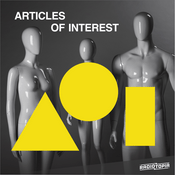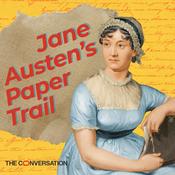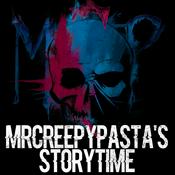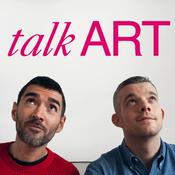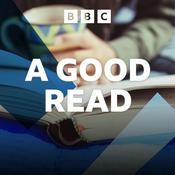12 episodes

Episode 12: Money in Transition
15/5/2022 | 1h 1 mins.
This podcast was created by a team of undergraduate students who have been working with the Cultural Life of Money and Finance project this academic year. The podcast presents findings from their research on the theme of "Money in Transition", which has included interviews with other students and research in the University's coin collections. Appearing in the podcast are Alex Dalton, Ewan Hazlewood and Blythe Manson. Also contributing to the project were Max Nowers and Violet Robinson.

Cultural Life of Money and Finance 11: Money and the informal economy in Italy, with Isabella Clough Marinaro
29/4/2021 | 43 mins.
The Cultural Life of Money and Finance podcast explores money and finance through the arts and humanities – asking new questions about finance, the global financial system, and financial behaviour in the twenty-first century. In a series of conversations with researchers and practitioners, we look at how money is being, and has been, thought about in different contexts – across historical, cultural, ethical, religious, social, and material settings. The Cultural Life of Money and Finance project is based at the University of Leeds, and is led by Matthew Treherne, Rachel Muers and Mark Davis. The project is supported by the Leeds Arts and Humanities Research Institute, and by the Leeds Creative Labs scheme at the Cultural Institute at the University of Leeds. In this episode, Matthew is joined by Isabella Clough Marinaro (John Cabot University), to discuss her work on money in the informal economy in Italy, especially in Rome. Isabella discusses issues relating to the importance of cash in the informal economy, the functions of formal and informal credit, the way in which financial practices in the informal economy affect experiences of time and temporality, and the relationship between money and shame. Isabella Clough Marinaro is Associate Professor of Italian Studies at John Cabot University in Rome. For more information on her work, see https://www.johncabot.edu/faculty/isabella-clough_marinaro. For more information on the Culture Life of Money and Finance Project, please visit https://culturallifeofmoney.leeds.ac.uk, and follow us on Twitter @CulturalMoney. The podcast was edited by Lisa Trischler.

Cultural Life of Money and Finance 10: Katy Shaw on the credit crunch in contemporary culture
23/4/2021 | 54 mins.
The Cultural Life of Money and Finance podcast explores money and finance through the arts and humanities – asking new questions about finance, the global financial system, and financial behaviour in the twenty-first century. In a series of conversations with researchers and practitioners, we look at how money is being, and has been, thought about in different contexts – across historical, cultural, ethical, religious, social, and material settings. The Cultural Life of Money and Finance project is based at the University of Leeds, and is led by Matthew Treherne, Rachel Muers and Mark Davis. The project is supported by the Leeds Arts and Humanities Research Institute, and by the Leeds Creative Labs scheme at the Cultural Institute at the University of Leeds. In this episode, Mark is joined by Katy Shaw, Professor of Contemporary Writings at Northumbria University in the UK, and they discuss her work on the credit crunch in contemporary culture. The podcast covers the idea that the entire financial system is a form of fiction; tackles the important issue of the public’s financial literacy; explores the gendered regime of finance; and makes a passionate case for the arts and humanities to work more closely with economics and social sciences to explore fully the cultural life of money and finance. Katy’s research interests include contemporary literature, especially working class literature, cultural representations of post-industrial regeneration, and the languages of comedy. An expert in twenty-first-century literature, Katy has produced two books on the crime author David Peace, a 2015 monograph on representations of the Credit Crunch in contemporary culture, and a collection on the teaching of twenty-first-century genre fiction. Her 2018 book Hauntology explored the persistent role of the past in the present of contemporary English Literature. To learn more about her work, see https://www.northumbria.ac.uk/about-us/our-staff/s/katy-shaw/. For more information on the Culture Life of Money and Finance Project, please visit https://culturallifeofmoney.leeds.ac.uk, and follow us on Twitter @CulturalMoney. The podcast was edited by Lisa Trischler.

Cultural Life of Money and Finance 8: Kathryn Brown on art markets and financialisation
26/3/2021 | 38 mins.
The Cultural Life of Money and Finance podcast explores money and finance through the arts and humanities – asking new questions about finance, the global financial system, and financial behaviour in the twenty-first century. In a series of conversations with researchers and practitioners, we look at how money is being, and has been, thought about in different contexts – across historical, cultural, ethical, religious, social, and material settings. The Cultural Life of Money and Finance project is based at the University of Leeds, and is led by Matthew Treherne, Rachel Muers and Mark Davis. The project is supported by the Leeds Arts and Humanities Research Institute, and by the Leeds Creative Labs scheme at the Cultural Institute at the University of Leeds. In this episode, Matthew is joined by Kathryn Brown, Senior Lecturer in Art History and Visual Culture at Loughborough University. They discuss how the development of art markets in the twentieth century displayed particular forms of financialisation; what art markets can reveal about financial practices; and how financial and aesthetic considerations can coincide in the experience of viewing art. Kathryn is the author of Matisse: A Critical Life (Reaktion, 2021), as well of articles on art markets and finance. To learn more about her work, see https://www.lboro.ac.uk/subjects/communication-media/staff/kathryn-brown/#tab5. For more information on the Culture Life of Money and Finance Project, please visit https://culturallifeofmoney.leeds.ac.uk, and follow us on Twitter @CulturalMoney. The podcast was edited by Lisa Trischler.

Cultural Life of Money and Finance 9: Avarice and Money in Late Renaissance France with Jonathan Patterson
26/3/2021 | 33 mins.
The Cultural Life of Money and Finance podcast explores money and finance through the arts and humanities – asking new questions about finance, the global financial system, and financial behaviour in the twenty-first century. In a series of conversations with researchers and practitioners, we look at how money is being, and has been, thought about in different contexts – across historical, cultural, ethical, religious, social, and material settings. The Cultural Life of Money and Finance project is based at the University of Leeds, and is led by Matthew Treherne, Rachel Muers and Mark Davis. The project is supported by the Leeds Arts and Humanities Research Institute, and by the Leeds Creative Labs scheme at the Cultural Institute at the University of Leeds. In this episode, Matthew is joined by Jonathan Patterson (University of Oxford), to discuss Jonathan's work on avarice in late Renaissance France. Jonathan explains how avarice was connected with notions of social class and gender, and relates to the physical presence of money. He also discusses how attitudes to money emerged in the context of humanism and religion, across multiple contexts. Jonathan is the author of Representing Avarice in Late Renaissance France (Oxford University Press, 2015); for more information on Jonathan's work, please visit https://www.mod-langs.ox.ac.uk/people/jonathan-patterson. For more information on the Culture Life of Money and Finance Project, please visit https://culturallifeofmoney.leeds.ac.uk, and follow us on Twitter @CulturalMoney. The podcast was edited by Lisa Trischler.
More Arts podcasts
Trending Arts podcasts
About The Cultural Life of Money and Finance
Listen to The Cultural Life of Money and Finance, Fresh Air and many other podcasts from around the world with the radio.net app
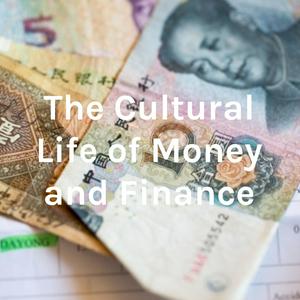
Get the free radio.net app
- Stations and podcasts to bookmark
- Stream via Wi-Fi or Bluetooth
- Supports Carplay & Android Auto
- Many other app features
Get the free radio.net app
- Stations and podcasts to bookmark
- Stream via Wi-Fi or Bluetooth
- Supports Carplay & Android Auto
- Many other app features


The Cultural Life of Money and Finance
download the app,
start listening.

